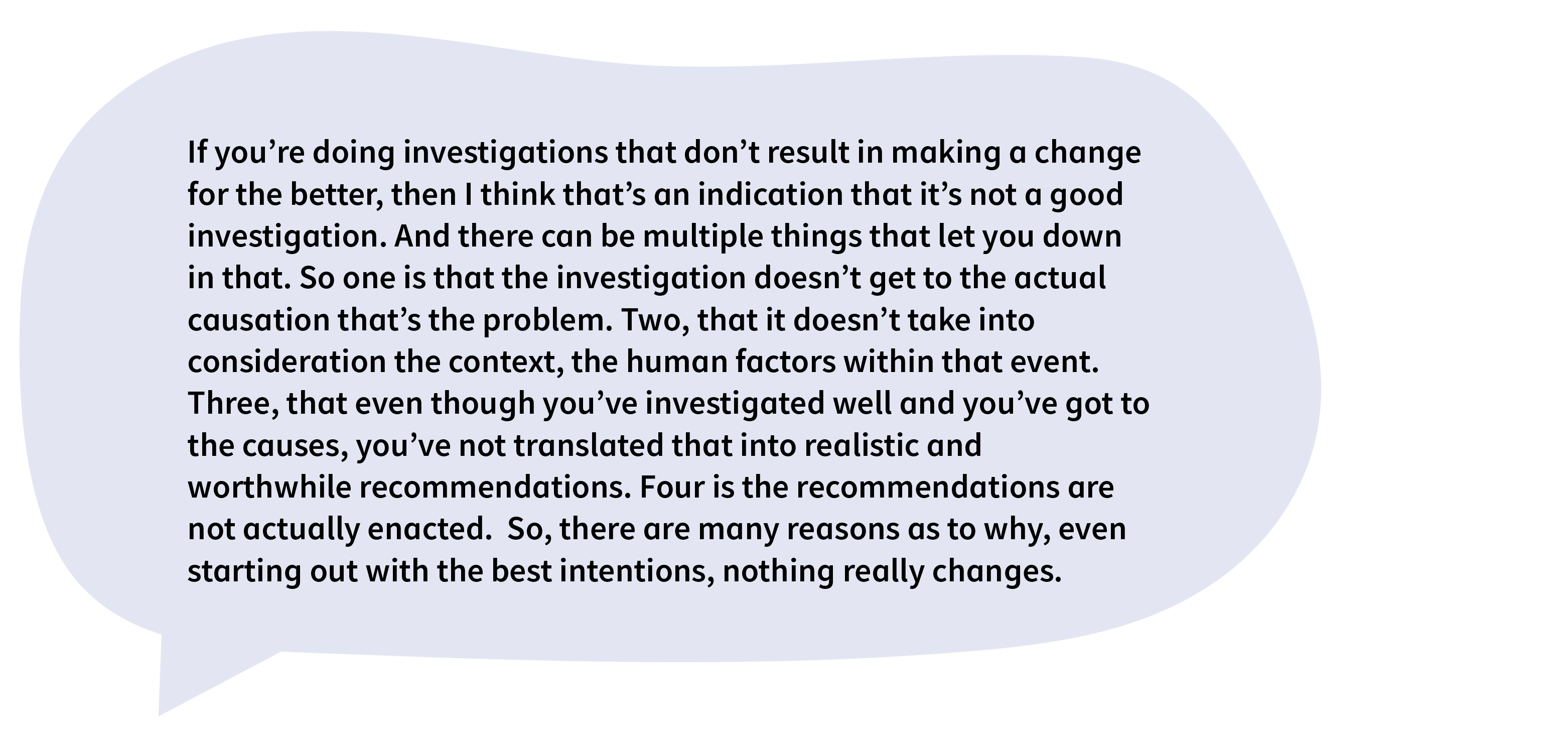A Focus Group Study of Health and Care Safety Investigators
05
What do we know?
- Evidence about the learning needs of safety investigators in health and care, the relevance of ongoing education, and challenges faced after initial training is limited.
- We do know that:
- There is a lack of a consistency to investigating and learning from safety issues in healthcare.
- Staff undertaking the investigator role benefit from appropriate training and ongoing development in investigation concepts and methods, but available opportunities are limited.
- There is variation in knowledge and application of modern safety investigation concepts and methods across health and social care systems.

Study aims
To explore previous training, ongoing experiences and learning needs of staff who conduct investigations and learning reviews in Scotland’s health and social care systems.
What did we do?
- We undertook seven online focus groups using MS Teams with a convenience sample of 71 staff (e.g. clinical governance, risk and safety advisors and leaders) from territorial and special health boards in Scotland.
- The focus group meetings were recorded with permission, transcribed verbatim and data were subject to thematic analysis.
What did we find?
Five principal themes were generated from data analysis:
- Initial investigator training by itself was not enough to feel confident in carrying out a safety investigation.

- The role of investigator is a complex one requiring a wide array of personal and workplace skills (such as integrity, communication skills, empathy, teamwork, report writing skills, theoretical knowledge).
- “Good Practice” in safety investigations involves establishing clarity of scope of the review at the outset, comprehensive family involvement, peer review, sharing the learning and meaningful implementation of recommendations.

- Barriers to “Good Practice” include a lack of protected time for investigators to devote to a learning review, as well as differing expectations of those involved and inefficient working across organisations.
- Continuing Professional Development needs identified included: mentoring, ‘shadowing’ more experienced staff and the support provided by adverse event review groups. Specific training needs mentioned included: training in report writing, including how to formulate action plans. Participants wanted greater consistency in training and the use of standardised templates and report forms.

Our Conclusions
- Participants were clear that staff undertaking safety investigations need to possess an accredited package of knowledge and skills to be able to confidently complete this important activity, but it emerged that there is currently no consistency in how investigation training is delivered in Scotland.
- The lack of a consistent approach also extends to how patients, families and staff are supported either during or after the event. The outcome of this study supports existing knowledge that greater harmony and standardisation are required in the content and delivery of training programmes and in the implementation and application of processes that support investigators and learning from safety investigations in Scotland.
Potential Next Steps
- Explore by consensus a set of core competencies for safety incident investigators
- Create comprehensive guides for conducting investigations
- Agree on a national safety training agenda
- Create an ongoing programme of professional development
- Build consensus on curriculum content for investigation training
- Create a peer network to allow interaction and sharing of learning and resources
- Provide access to a learning platform to deliver hybrid investigation training
Judy Wakeling
Ian Davidson
Laura Walker
Paul Bowie
